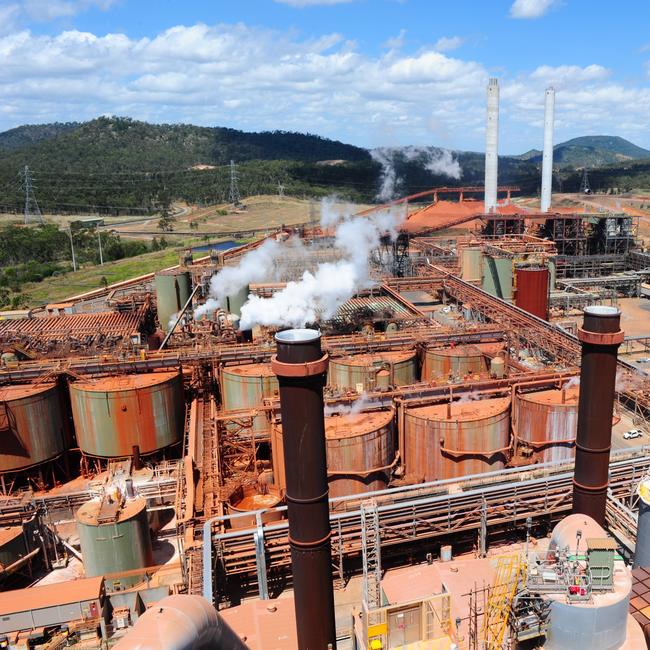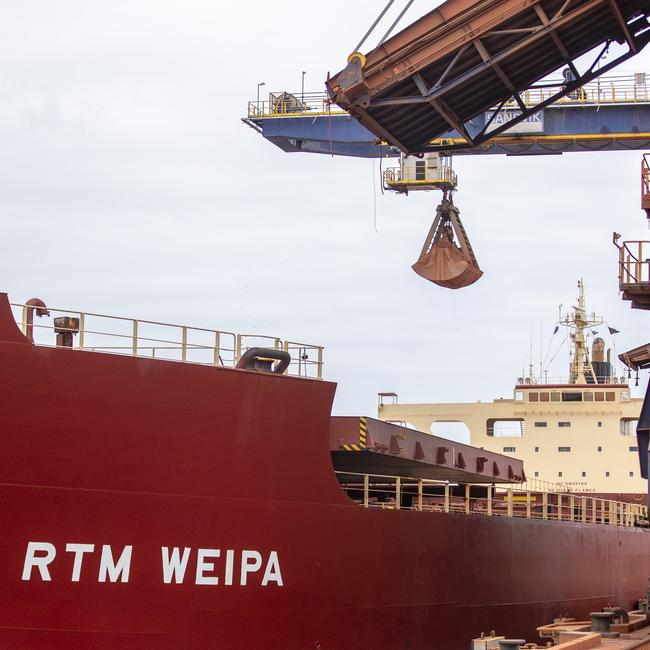Rio Tinto fined after caustic spills near Yarwun alumina refinery, north of Gladstone
More than 130,000 litres of diluted caustic flowed into an industrial drain after a valve was accidentally left open following a leak from a corroded pipeline neat Rio Tinto’s Yarwun facility. Here’s how much the company was fined in court.
Gladstone
Don't miss out on the headlines from Gladstone. Followed categories will be added to My News.
Mining giant Rio Tinto has been fined $57,000 after human error and administrative failure led to chemical leaks near its wharf facility at Yarwun, north of Gladstone.
Rio Tinto’s subsidiary, RTA Yarwun pleaded guilty in the Gladstone Magistrates Court last week to two counts of contravening a condition of its environmental authority following an incident in late 2020.
Court documents revealed that on October 20, about 20 litres of sodium hydroxide (caustic soda) leaked from a corroded pipeline, which the company was aware of, and was discharged onto land in proximity of the nearby port.

The small hole was located in the pipeline that connects Rio Tinto’s wharf facility to the Yarwun alumina refinery.
The leak went unnoticed for about an hour before the hole in the corroded pipe was sealed with a clamp and the government regulator was notified by the company.
During subsequent leak and integrity testing, which included pumping freshwater through the pipeline, a valve was accidentally left open and led to about 133,000 litres of diluted caustic flowing into an industrial drain.
The release of the diluted caustic did not impact nearby waterways as it was contained to an industrial drain and it was not suggested the land where the sodium hydroxide was discharged was of any environmental significance.

ABC Capricornia reported that in court, Jeffrey Hunter QC, acting on behalf of the Queensland Department of Environment and Science said while the actions did not expose the environment to enormous risk, had the leaks continued they might have.
Counsel acting on behalf of the Queensland Department of Environment and Science told the court Rio Tinto was aware of the corroded pipeline and plans were in place for its repair, but there had been delays.
The corroded pipeline was replaced the following month and new monitoring processes were implemented, according to the defence.
Rio Tinto general manager, Mark Gilmore said the company regretted the October 2020 incident and accepted last Friday’s court judgement.

“Rio Tinto’s response at the time of the caustic release was to immediately initiate clean-up measures and to notify the Government Regulator,” Mr Gilmore said.
“We are continuing to work with stakeholders as an action plan is implemented to ensure that a similar event does not reoccur,” he said.
Mr Gilmore said Rio Tinto conducted its own investigation into the incident and shared its findings with the regulator.
New bladders with improved leak-detection technology are now being used to store caustic soda when it arrives by ship as part of wider improvements at Rio Tinto’s Fisherman’s Landing facilities.
Rio Tinto said it was ‘strongly committed to continuing improving its environmental controls and had been focused on investing in this in recent years.
Magistrate John McInnes ordered the company to pay a $57,000 fine and cover the department’s legal and investigation costs.
No convictions were recorded.




